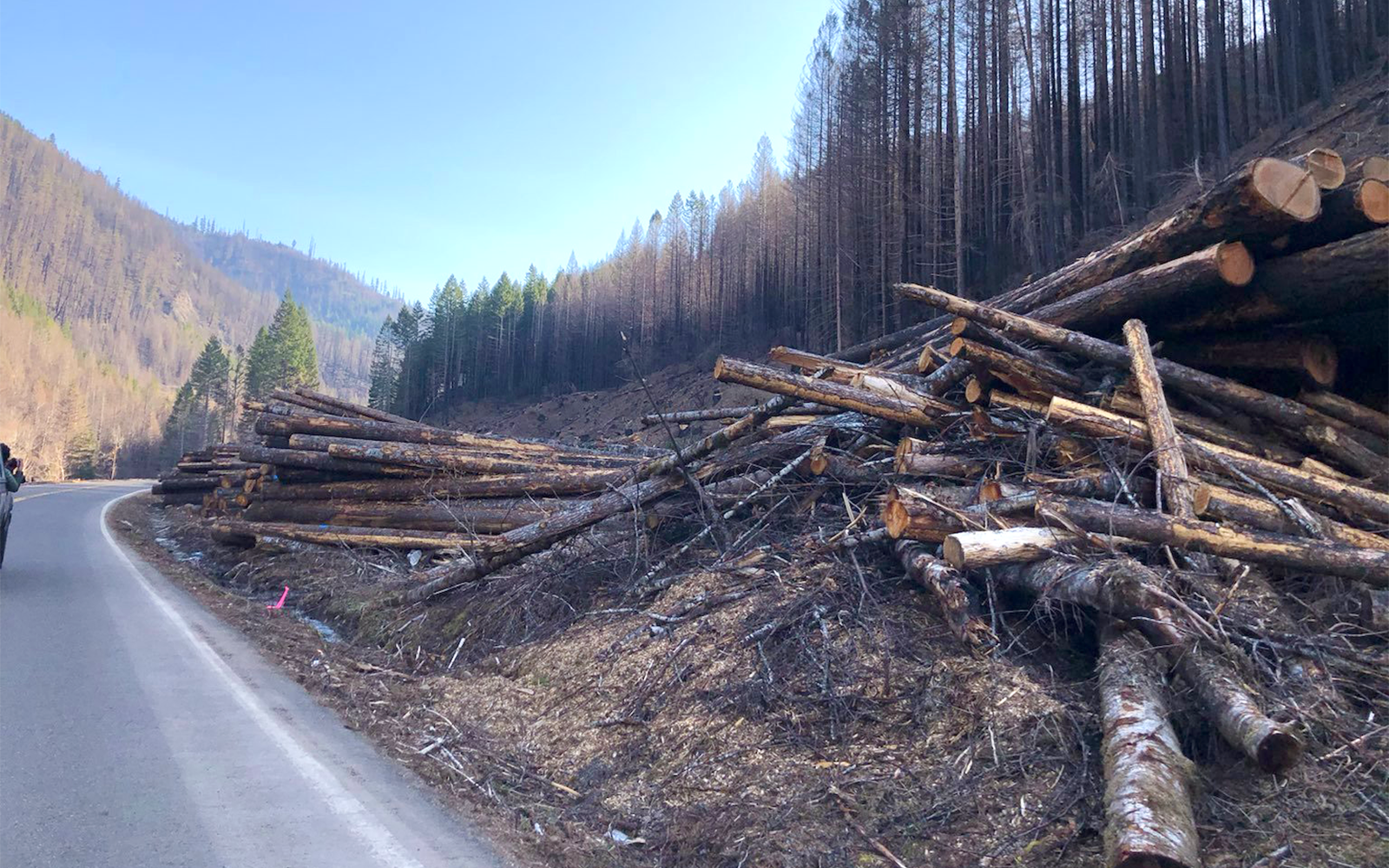FOR IMMEDIATE RELEASE
November 5, 2021
Contacts:
Oliver Stiefel, Crag Law Center, Lead Counsel, oliver@crag.org, 503-348-7928
Nick Cady, Cascadia Wildlands, nick@cascwild.org, 314-482-3746
Doug Heiken, Oregon Wild, dh@oregonwild.org, 541-915-2329
Travis Williams, Willamette Riverkeeper, travis@willametteriverkeeper.org, 503-890-1683
Judge Halts Willamette National Forest Roadside Logging Project
Finds Agency Overreached in Using Rule for Routine Maintenance for Massive Logging Project
EUGENE, OR – Today for the second time this year, a federal court halted U.S. Forest Service (Forest Service) plans to carry out extensive post-fire roadside logging. In granting a preliminary injunction, the court stopped planned commercial logging along 400 miles of roads within the Willamette National Forest. Federal District Judge Michael McShane’s order states: “Given the immense scale of this Project, which allows the felling of trees along 404 miles of forest roads, Plaintiffs [Cascadia Wildlands, Oregon Wild, and Willamette Riverkeeper] have demonstrated a likelihood of success on the claim that the Forest Service may not use the road repair and maintenance [Categorical Exclusion] to avoid [National Environmental Policy Act (NEPA)] review,” page 11. The Forest Service will be largely precluded from commencing logging until the court has heard and decided on the case, likely in early 2022.
After the 2020 Labor Day wildfires, the Willamette National Forest planned a massive logging project along 400 miles of forest roads and several thousand acres under a loophole called a categorical exclusion, which would have excused the agency from the required NEPA review. If allowed to proceed under the categorical exclusion, the agency would have moved forward with large-scale logging operations without considering environmental impacts and without considering public feedback and involvement.
Lead counsel Oliver Stiefel of Crag Law Center said: “Many of the trees proposed for logging pose no imminent danger. As the judge recognized, a large majority pose a low risk, which completely undercuts the Forest Service’s attempt to rush the project forward without carefully weighing competing values and meaningfully involving the public.”
In the wake of other fires, other National Forests in the region have applied a much lighter approach to post-fire roadside logging. The conservation groups did not object to removal of imminent danger trees along major roadways or repair and maintenance of bridges, including the Henline Bridge which provides access to Jawbone Flats and the Opal Creek Ancient Forest Center. Post-fire logging has widespread, detrimental effects on water quality, wildlife habitat, forest soils, and natural recovery.
“The court recognized that this massive post-fire logging project was not routine maintenance,” said Nick Cady, legal director for Cascadia Wildlands. “The Forest Service attempted to use the fires as cover to commercially log in scenic areas and on remote roads, which risked further harm to these sensitive burned landscapes and undermined confidence in their ability to manage public lands.”
Today’s ruling follows a decision this summer from the federal court for the Eastern District of California, enjoining the Forest Service from proceeding with roadside logging until the court hears the merits of the lawsuit.
Doug Heiken, Conservation and Restoration Coordinator with Oregon Wild said, “Our response after fire must be thoughtful, not rushed or we risk doing more harm to the sensitive recovery ecosystem. Experts tell us to retain as many trees to stabilize soils, provide shade and nurture the new forest.”
The planned roadside logging would impact water quality in the Willamette River and tributaries and would negatively affect adjacent streams and rivers. Rivers in the project area are home to Upper Willamette Spring Chinook, Bull Trout, and Upper Willamette Winter Steelhead.
“Logging along 400 miles of roads will increase erosion and push more dirty water into the Willamette River impacting fish, freshwater mussels and adding more stress to the system,” said Travis Williams, Riverkeeper & Executive Director at Willamette Riverkeeper.
Judge McShane indicated Wednesday that the conservation organizations have a high likelihood of success on their claims and that logging activities will be largely paused until the court holds a full hearing on the merits of the case, likely early next year.
The conservation groups in this case are represented by attorneys from the Crag Law Center and Cascadia Wildlands.

